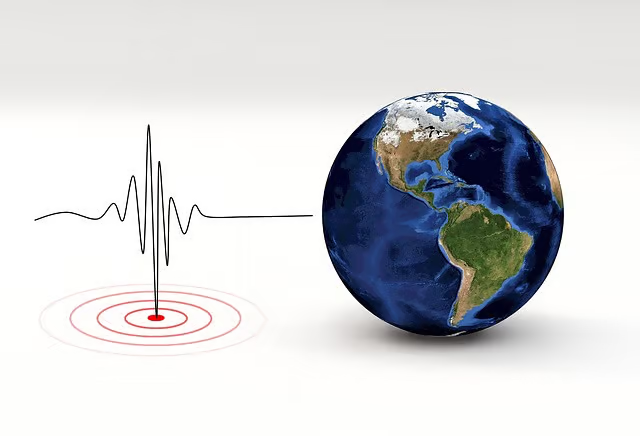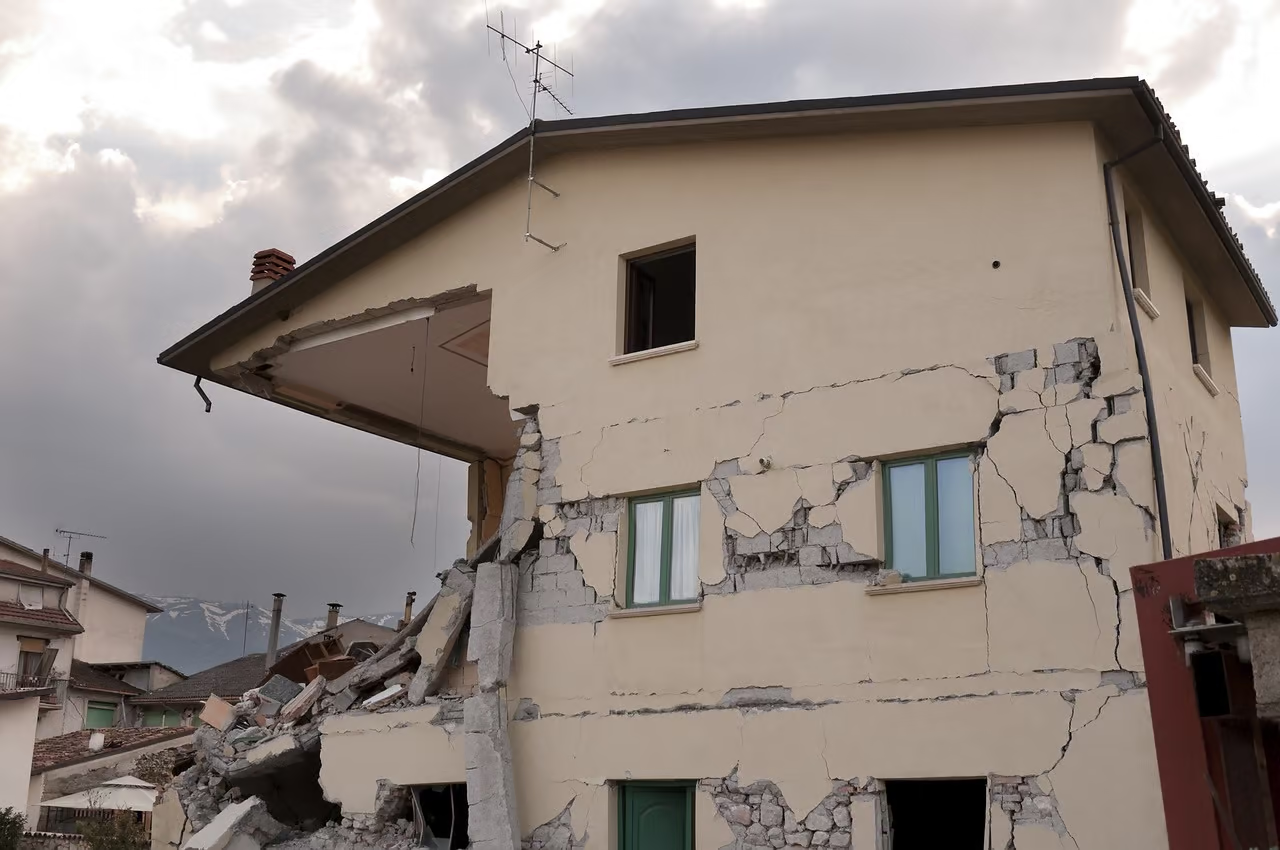Can Climate Change Truly Cause Earthquakes?
Climate change and earthquakes have been the subject of much debate recently. While it may not appear that these two topics are related, there is evidence to suggest that climate change could be causing an increase in the frequency and magnitude of some earthquakes. But is that true? Let's find out if climate change can cause earthquakes.
There's no definite answer to whether climate change can cause earthquakes. The origin of earthquakes is related to the changes and movements of tectonic plates. Hence, climate change has no relation with earthquakes on that note.
The only exception is if there is a chemical change in the pedosphere. If climate change creates a chemical change in the pedosphere, it could affect the inner part of the lithosphere, conceivably resulting in seismicity.
In other words, there is a grain of truth in the ongoing news that climate change can cause earthquakes. But there's still no solid evidence to prove this reaction. In this blog post, we'll discuss climate change, earthquakes, and ways to protect oneself during seismic activity; kindly read on to find out.

What is Climate Change?
Climate change can be defined as a long-term change in atmospheric conditions, such as temperatures in a region.
Since the earth operates in a cycle, climate change can be triggered in various ways - resulting in different temperatures and weather.
Initially, climate change was known to be triggered by natural effects. As years went by, scientists have deduced that human activities such as burning fossil fuels, storing water behind dams, drilling wells, and so on could result in climate change.
Moving forward, many people have tied climate change to only hot temperatures or weather, but there's more to it. It could also be linked to frigid temperatures, heavy rains, and many more, resulting in floods, high sea levels, severe fires, etc. Read this article that gives a list of environmental crisis examples.
Researchers believe that climate change can change the frequency and volume of some geological threats like earthquakes, volcanic eruptions, and other hazards.
Although they still need to provide solid evidence to justify their belief.

Can Climate Change Affect Earthquakes?
Yes! Climate change can most certainly affect earthquakes. Though no evidence proves this, a few reactions and incidents can be used to justify the positive answer.
Scientists believe that because of the changes to Earth's surface temperature and weather patterns, the tectonic plates underneath the Earth's surface become more stressed.
This increased pressure can lead to plate movement, resulting in more frequent and stronger quakes than what may generally be observed.
Conversely, when there is too much rainfall, the tectonic plates may be lubricated, which would cause them to move sooner than usual, resulting in an earthquake.
However, since there is yet to be concrete proof that can be tied to climate change causing earthquakes, scientists would have to continue their research on climate change and earthquakes.
The research would be to understand how climate change and earthquakes are connected and how to best prepare for potential natural disasters.

What Are Some Examples of Weather-induced Earthquakes?
There have been numerous incidents of weather-induced earthquakes over the years in various regions. As we'd have it, most of the weather-induced earthquakes are severe and occur months later after the weather activity.
Some examples of weather-induced earthquakes are shared below:
- In Haiti Island, in January 2010, a confining earthquake occurred a year and six months later after the island was struck by an intense hurricane season that included two hurricanes and tropical storms.
- In 1999, a similar earthquake incident that happened in Haiti occurred in Taiwan. That year, a massive earthquake struck Taiwan after a windstorm resulted in a flood and significant damage.
- Also, In 2010, the country experienced another series of earthquakes seven months after the cyclone released more than 115 inches of rain nonstop for five days.
Here is a list of more examples of natural disasters induced by climate change.
Aside from Taiwan and Haiti Island, weather-induced earthquakes have occurred in other regions.
Regions such as Ms. 7.6 ChiChi on September 21, 1999, Ms. 7.8 Tangshan on July 28, 1976, and so on were also struck by earthquakes with rainfall episodes.
While there are still more examples of weather-induced earthquakes, the few mentioned above have demonstrated that not only is climate change linked to earthquakes, but specific environmental events can also result in increased seismic activity.
How Can We Protect Ourselves from the Effects of Weather-Induced Earthquakes?
Records have it that earthquakes, either human-induced, naturally caused, or weather-induced, have caused many deaths, injuries, and property damage. Hence, it is necessary to be aware of how to protect yourself when an earthquake incident arises.
Below are a few ways to protect yourself during an earthquake:
1. Be aware:
Ultimately, awareness is the most essential way to protect ourselves from potential disasters like quakes. We can form contingency plans by understanding how increased temperatures and weather-induced saturation can impact seismic activity.
These could include installing targeted sensors throughout vulnerable regions or monitoring water tables for increased levels indicative of susceptibility to earthquakes induced by heavy rains.
2. Take standard safety measures:
Another way to protect yourself from geological hazards is by taking necessary precautions. One of the ways to take precautions is to avoid building in regions prone to earthquakes or eruptions.
You can check the records of that region to ensure there weren't any recorded incidents of earthquakes or the possibility of earthquakes.
Other safety measures to take are to build on higher grounds rather than lower lands, make sure there is satisfactory drainage around your home, move your valuables to higher floors, and so on.
Furthermore, environmental planning is critical in reducing the risk of damage from future tremors.
3. Buy insured products:
As aforesaid, earthquake incidents damage properties. So, you'd want to ensure that your properties, such as your valuable products, are protected alongside you.
There have been a lot of products with insurance on the market recently. But you should ensure the insurance covers all kinds of natural disasters like earthquakes. You could also get insurance with an earthquake extension for your house.
Likewise, you can also get insurance for your shop to prevent you from being at a loss if your shop gets struck by an earthquake. Then, you can be rest assured that if an earthquake occurs in your region, your building, store, properties, and you will be safe.
4. More precautions:
When an earthquake, whether weather-induced or naturally caused, is occurring, if you're outside a building, you should go to open ground.
You should avoid standing near tall buildings, trees, or poles to prevent you from being injured during an earthquake.
And if you're trapped in a building during an earthquake, you should protect yourself by hiding under a table or below an enclosed place.
Conclusion: Understanding the Impact of Climate Change on Earthquakes
The relation between climate change and earthquakes cannot be accurately predicted.
All of this information has made it clear that we need to make further progress in understanding the impact of climate change on seismicity, such as researching ways to reduce environmental damage from potential seismic events. With this knowledge, experts can then make better decisions about how best to prepare for and respond to earthquakes.

